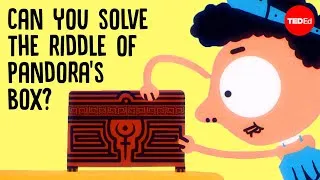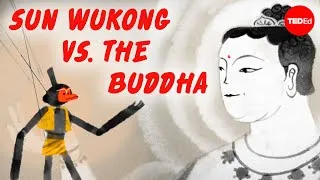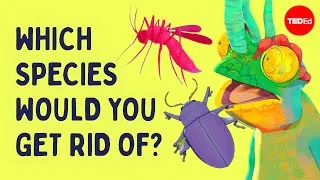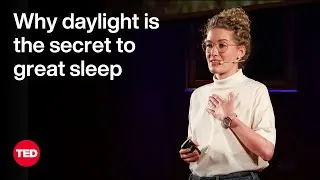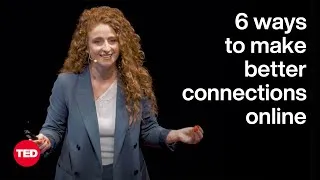Oxygen’s surprisingly complex journey through your body - Enda Butler
3,277,565 views ・ 2017-04-13
請雙擊下方英文字幕播放視頻。
譯者: Lilian Chiu
審譯者: Helen Chang
00:07
You breathe in about 17,000 times per day.
0
7384
5440
一天中你會呼吸大約一萬七千次。
00:12
It's a process you rarely think about,
1
12824
2200
這是個你很少會去想的過程,
00:15
but behind the scenes, a huge coordinated
effort is playing out.
2
15024
5228
但在這個過程的幕後,要投入
極大的努力去協調才能有此成果。
00:20
Your vital organs,
3
20252
1401
你的重要器官、
00:21
the gut,
4
21653
860
腸道、
00:22
brain,
5
22513
720
大腦、
00:23
bones,
6
23233
800
骨頭、
00:24
lungs,
7
24033
830
00:24
blood,
8
24863
722
肺、
血液,
00:25
and heart
9
25585
953
以及心臟,
00:26
work together to sustain your life
10
26538
2247
要同心協力,才能將氧氣
00:28
by delivering oxygen
to tissues throughout your body.
11
28785
4158
送到你全身的組織,
以維持你的生命。
00:32
Most of our cells need oxygen
12
32943
1840
我們大部分的細胞都需要氧氣,
00:34
because it's one of the key ingredients
of aerobic respiration.
13
34783
4431
因為氧氣是有氧呼吸的
關鍵成分之一。
00:39
That's the process that produces
a molecule called ATP,
14
39214
4208
有氧呼吸是一個過程,會產生
叫做三磷酸腺苷(ATP)的分子,
00:43
which our cells use to power their
many incredible functions.
15
43422
4135
我們的細胞用它來提供動力
給許多了不起的功能使用。
00:47
But getting oxygen throughout our
bodies is a surprisingly difficult task.
16
47557
5508
然而,將氧氣傳送至全身
是一項異常艱鉅的任務。
00:53
Gas enters cells by diffusing in
from their surroundings.
17
53065
4190
氣體進入細胞的方式,
是從細胞周圍擴散進去。
00:57
And that only happens efficiently
over tiny distances.
18
57255
4611
這個方式要在
非常近的距離內才有效。
01:01
So for oxygen to reach the cells
within our bodies,
19
61866
3019
所以,為了要讓氧氣
抵達我們體內的細胞,
01:04
it needs a transportation network.
20
64885
2720
需要有一個運輸網絡。
01:07
This is where our 20 trillion
red blood cells come in.
21
67605
4300
這時就該我們的
二十兆個紅血球出場了。
01:11
Each one contains about 270 million
oxygen-binding molecules of hemoglobin,
22
71905
6539
每個紅血球皆帶有 2.7 億個
和氧氣結合的血紅素分子,
01:18
which is what gives blood its scarlet hue.
23
78444
3530
這就是血液呈現鮮紅色的原因。
01:21
To make these cells, the body uses
raw materials
24
81974
3044
身體用來製造這些紅血球的原料
01:25
that become available from
the food we eat.
25
85018
3377
來自我們吃的食物。
01:28
So in some ways, you could say
that oxygen's journey through the body
26
88395
3880
因此,在某種意義上,
氧氣在身體中所進行旅程,
其實是始於腸道。
01:32
really begins in the gut.
27
92275
2642
01:34
Here, in an amazing display of mechanical
and chemical digestion,
28
94917
3974
這裡有個很棒方式能說明
機械性及化學性消化,
01:38
food gets broken down into
its smallest elements,
29
98891
3605
食物被分解成它最小的單位元素,
01:42
like iron, the building block
of hemoglobin.
30
102496
3421
以鐵來說,它是由
血紅素當磚塊所組成的。
01:45
Iron is carried through
the cardiovascular system
31
105917
2719
通過心血管系統,
01:48
to the body's hematopoietic tissue.
32
108636
3140
鐵會被帶到身體的造血組織。
01:51
This tissue is the birthplace
of red blood cells,
33
111776
3150
此組織就是紅血球的誕生地,
01:54
and it can be found enclosed within
our bone marrow cavities.
34
114926
4220
它位在我們的骨髓腔內。
01:59
The kidneys regulate
our levels of red blood cells
35
119146
2602
腎臟能釋出紅血球生成素,
02:01
through the release of erythropoietin,
36
121748
2740
來調節我們的紅血球數量,
02:04
a hormone which causes marrow
to increase production.
37
124488
4039
紅血球生成素是一種賀爾蒙,
能讓骨髓增加產量。
02:08
Our bodies churn out roughly 2.5 million
red blood cells per second,
38
128527
5150
我們身體每秒會大量產出
約 250 萬個紅血球,
02:13
a number equivalent to the entire
population of Paris,
39
133677
4119
等同整個巴黎的人口數,
02:17
so that oxygen that makes it to the lungs
will have ample transportation.
40
137796
4832
這麼一來,到達肺部的氧氣,
就能有很充足的交通運輸。
02:22
But before oxygen
can even reach the lungs,
41
142628
2619
但在氧氣抵達肺部之前,
02:25
the brain needs to get involved.
42
145247
2151
大腦需要先參一腳。
02:27
The brainstem initiates breathing
43
147398
2016
腦幹會利用神經系統來發送訊息,
02:29
by sending a message
through your nervous system,
44
149414
2584
以啟動呼吸,
02:31
all the way to muscles
of the diaphragm and ribs.
45
151998
3570
訊息會一路被送到
橫隔膜及肋骨的肌肉。
02:35
This causes them to contract,
46
155568
2151
這會造成這些肌肉收縮,
02:37
thus increasing the space
inside the rib cage,
47
157719
3109
因而增加肋骨內的空間,
02:40
which allows the lungs to expand.
48
160828
2889
讓肺部得以擴張。
02:43
That expansion drops your lungs
internal air pressure,
49
163717
3241
擴張就會讓肺的內部氣壓降低,
02:46
making air rush in.
50
166958
2460
使空氣流入。
02:49
It's tempting to think of our lungs
as two big balloons,
51
169418
3151
可以把肺部想成兩個大氣球,
02:52
but they're actually a lot more
complicated than that.
52
172569
3359
但事實上肺比氣球複雜許多。
02:55
Here's why.
53
175928
1170
原因如下。
位於肺部血管中的紅血球
02:57
The red blood cells in the vessels
within your lungs
54
177098
2540
02:59
can only pick up oxygen molecules
that are very close to them.
55
179638
4945
只能取得與它們
非常接近的氧氣分子。
03:04
If our lungs were shaped like balloons,
56
184583
2095
如果我們肺部的形狀像是氣球,
03:06
air that was not in direct contact
with the balloon's inner surface
57
186678
3951
無法接觸到氣球內部表層的空氣
03:10
couldn't diffuse through.
58
190629
3040
就無法擴散過去。
03:13
Luckily, our lungs' architecture ensures
that very little oxygen is wasted.
59
193669
6090
幸運的是,肺部的構造
能將氧氣的浪費降至非常低。
03:19
Their interior is divided into
hundreds of millions
60
199759
2662
肺的內部含有數億個
03:22
of miniature balloon-like projections
called alveoli
61
202421
4007
迷你的氣球狀凸出物,稱為肺泡,
03:26
that dramatically increase
the contact area
62
206428
2322
能大量增加接觸面積,
03:28
to somewhere around 100 square meters.
63
208750
4520
增加到約一百平方公尺。
03:33
The alveolar walls are made of
extremely thin flat cells
64
213270
4180
肺泡壁由極扁平的細胞構成,
03:37
that are surrounded by capillaries.
65
217450
3021
這些細胞被微血管包圍。
03:40
Together, the alveolar wall and
capillaries make a two-cell thick membrane
66
220471
5120
肺泡壁和微血管會合力
形成一種雙細胞厚膜,
03:45
that brings blood and oxygen close enough
for diffusion.
67
225591
4389
拉近血液和氧氣的距離,
近到足夠進行擴散作用。
03:49
These oxygen-enriched cells are then
carried from the lungs
68
229980
3325
這些富含氧的細胞接著
會被從心血管網絡帶離肺部,
03:53
through the cardiovascular network,
69
233305
2405
03:55
a massive collection of blood vessels
that reaches every cell in the body.
70
235710
4630
心血管網絡是由大量血管組成,
能通達體內的每一個細胞。
04:00
If we laid this system out
end to end in a straight line,
71
240340
3370
如果我們把這系統的
血管拉開,接成一直線,
04:03
the vessels would wrap around the Earth
several times.
72
243710
4131
其總長度可以環繞地球好幾圈。
04:07
Propelling red blood cells
through this extensive network
73
247841
3329
要能使紅血球通過
這麼巨大的網絡,
04:11
requires a pretty powerful pump,
74
251170
2542
就需要一個非常強大的幫浦,
04:13
and that's where your heart comes in.
75
253712
2430
那就是心臟。
04:16
The human heart pumps an average
of about 100,000 times per day,
76
256142
4829
人類心臟一天平均跳動十萬下,
04:20
and it's the powerhouse that ultimately
gets oxygen where it needs to go,
77
260971
4840
是讓氧氣能抵達
其目的地的動力源,
04:25
completing the body's team effort.
78
265811
2901
完成整個身體的團隊合作。
04:28
Just think - this entire complex system
is built around the delivery
79
268712
4360
想想看——光是為了
運輸微小的氧氣分子,
04:33
of tiny molecules of oxygen.
80
273072
3220
就要打造這一整個複雜的系統。
04:36
If just one part malfunctioned,
so would we.
81
276292
3809
只要有一個環節故障,
我們也會故障。
04:40
Breathe in.
82
280101
1192
吸氣。
04:41
Your gut, brain, bones,
lungs, blood, and heart
83
281293
3280
你的腸道、大腦、骨頭、
肺、血液,以及心臟
04:44
are continuing their incredible act
of coordination that keeps you alive.
84
284573
5420
都持續它們了不起的
協調運作,維持你的生命。
04:49
Breathe out.
85
289993
1660
吐氣。
New videos
Original video on YouTube.com
關於本網站
本網站將向您介紹對學習英語有用的 YouTube 視頻。 您將看到來自世界各地的一流教師教授的英語課程。 雙擊每個視頻頁面上顯示的英文字幕,從那裡播放視頻。 字幕與視頻播放同步滾動。 如果您有任何意見或要求,請使用此聯繫表與我們聯繫。


